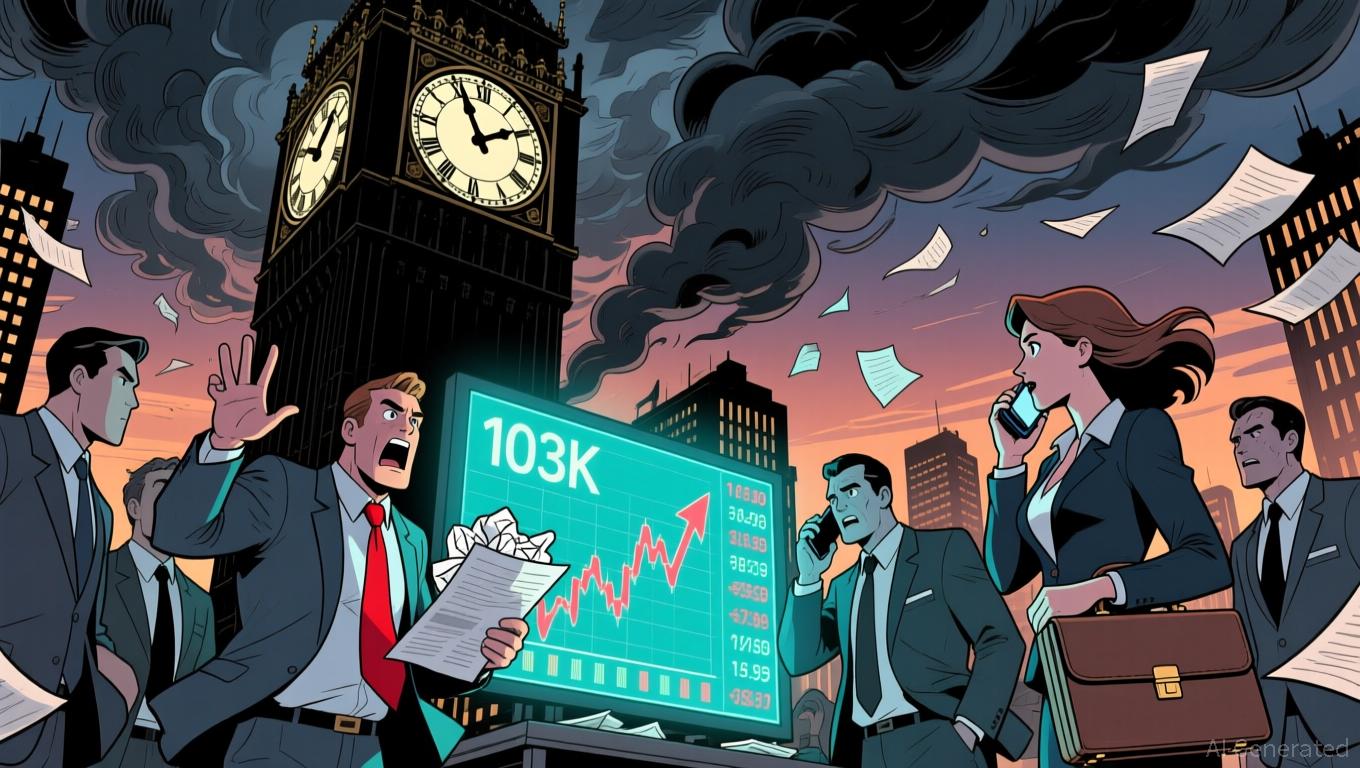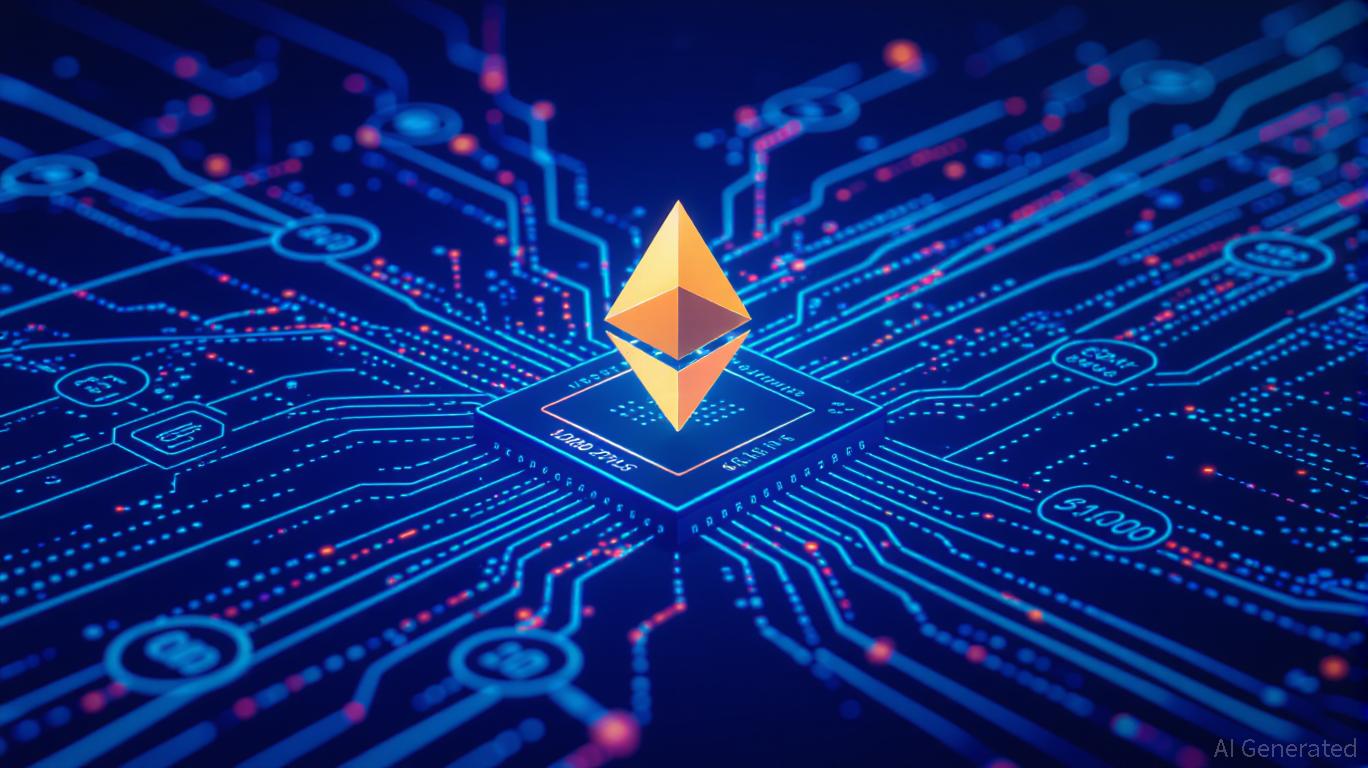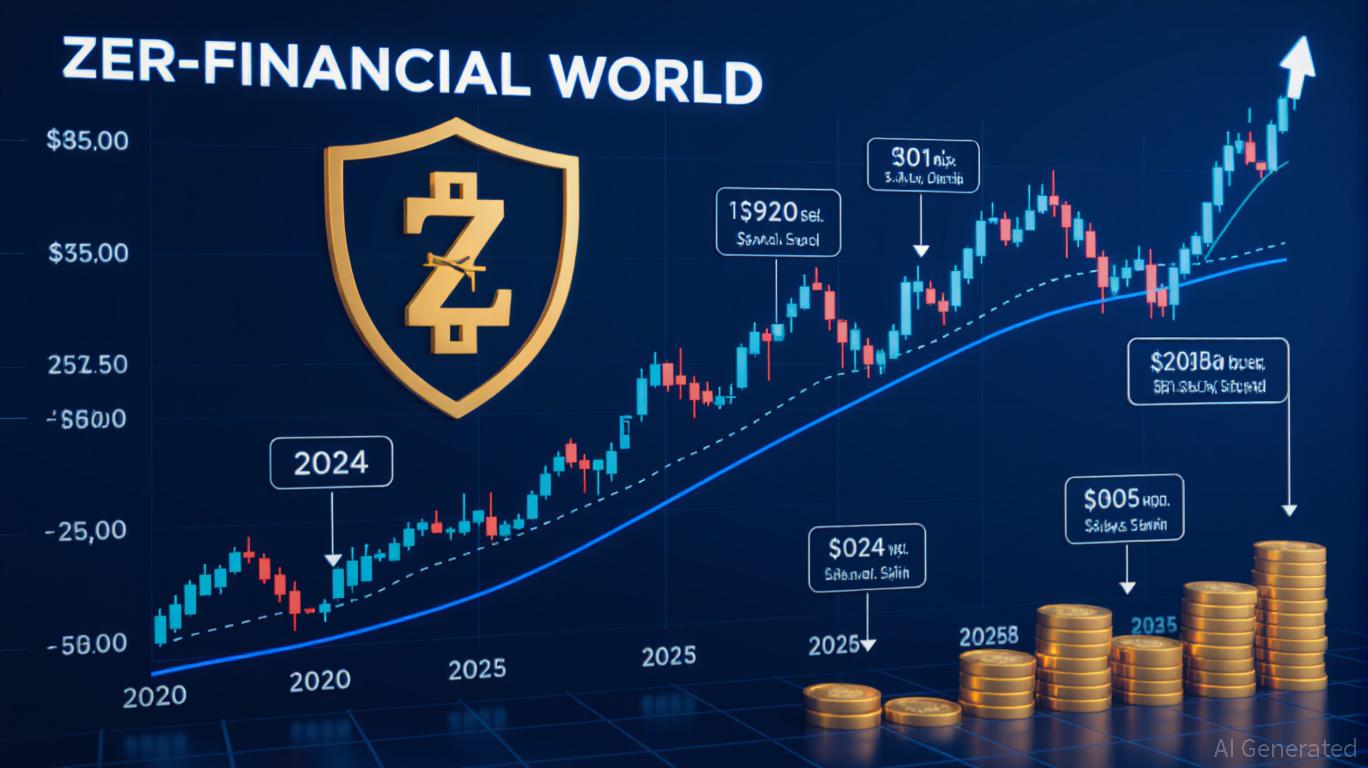Hong Kong’s answer to Silicon Valley emerges as PARK AURA becomes a hub for AI and Web3 startups
- Meitu founder Cai Wensheng announced full occupancy of PARK AURA, a HK$650M AI-Web3 startup hub in Hong Kong's Tin Hau district. - The 25-floor building features AI-themed spaces, free shared offices, and studios to foster innovation and talent retention. - Cai emphasized Hong Kong's "rich talent pool" and urged government-industry collaboration to accelerate AI-Web3 growth, mirroring Silicon Valley models. - He projected a $40T crypto market by 2035, aligning with Hong Kong's crypto-friendly policies th
On November 4, 2025, Cai Wensheng, the founder of Meitu, a leading image-editing company, revealed at Hong Kong Fintechweek 2025 that his HK$650 million investment to acquire and transform a commercial property in Tin Hau into an AI-Web3 startup hub has achieved full occupancy. Now named "PARK AURA," the building is completely filled with AI and Web3 enterprises, further establishing Hong Kong as a center for technological innovation, according to a

This 25-story building, just a minute's walk from the subway, offers a versatile environment aimed at encouraging creativity. The ground and second floors feature an AI-focused café and an event space, while the upper levels provide complimentary co-working offices for local entrepreneurs and dedicated studios for AI and Web3 ventures, as detailed in the Lookonchain report. Cai pointed out that the building's prime location and comprehensive facilities, including food and lodging, play a vital role in nurturing startups in the heart of the city.
Cai's project reflects his confidence in Hong Kong's ability to become a leader in the AI-Web3 arena. He praised the city's "abundant talent resources" as a key driver for future breakthroughs and encouraged the government to offer more direction to both private businesses and industry players to speed up progress, the Lookonchain report noted. He also urged property developers to take similar steps, reshaping Hong Kong's commercial sector to better accommodate technology startups.
The entrepreneur also highlighted the rapid expansion potential of the crypto sector, estimating its current worth at $4 trillion. He predicted that this figure could increase tenfold within ten years, and even at $40 trillion, it would still be smaller than traditional asset markets, according to the Lookonchain report. This positive outlook is in line with the broader movement in Hong Kong's financial industry, where regulators have become more open to cryptocurrencies, drawing companies from Singapore and other regions, as reported by the
Cai's ambitions for the Tin Hau site are part of a broader effort to elevate Hong Kong as a leader in global innovation. Purchased in May 2025, the building was redesigned to feature collaborative areas reminiscent of Silicon Valley incubators, merging workspace with community interaction, according to a
Although the center has quickly become a success, there are still hurdles to overcome. Hong Kong's real estate market, while on the mend, continues to deal with challenges such as increasing expenses and competition for office space, the South China Morning Post noted. Nevertheless, Cai's initiative illustrates how targeted investments can foster ecosystems that connect talent, funding, and infrastructure—a blueprint he hopes will be adopted throughout the city.
Disclaimer: The content of this article solely reflects the author's opinion and does not represent the platform in any capacity. This article is not intended to serve as a reference for making investment decisions.
You may also like
Bitcoin News Update: Bitcoin’s Drop to $100k Highlights Short-Term Anxiety Versus Enduring Confidence from Institutions
- Bitcoin fell below $100,000 in Nov 2025 amid geopolitical tensions and profit-taking, wiping $1.3B in crypto liquidations. - Technical indicators showed bearish momentum, with whales selling 38.4k BTC while retail traders bought 415 BTC. - Michael Saylor predicted $150k BTC by year-end, citing institutional adoption, as investors shifted to altcoins like AlphaPepe. - Miners like MARA doubled Bitcoin reserves in Q3, but stocks dipped amid macroeconomic uncertainties and volatile price swings.

Vitalik Buterin Backs ZKsync: Driving Layer 2 Expansion and Unlocking Investment Opportunities
- Vitalik Buterin's endorsement of ZKsync's Atlas upgrade validates its technical innovation, boosting institutional interest and investor confidence. - The upgrade enables direct Ethereum liquidity access, achieving 15,000+ TPS and near-zero fees, positioning ZKsync as a key Layer 2 infrastructure. - Buterin's backing triggered a 120% token price surge and $600M market cap, highlighting its potential to dominate Ethereum's scaling solutions. - ZKsync's tokenomics overhaul prioritizes buybacks and staking

Zuckerberg: *The Social Network* Captured My Mannerisms, But Not My Life
- Mark Zuckerberg praised *The Social Network* for accurately replicating his Harvard-era casual style, including owned T-shirts and fleece jackets. - He criticized the film's narrative, calling its portrayal of his Facebook motivations and fabricated romantic subplot "completely wrong." - Zuckerberg highlighted Hollywood's struggle to grasp tech entrepreneurship's intrinsic appeal, emphasizing real-world innovation vs. dramatization. - Despite narrative disagreements, he bought the film's iconic "Ardsley

Zcash Halving Scheduled for November 2025: Triggering Market Fluctuations and Attracting Speculative Investments
- Zcash's November 2025 halving will cut miner rewards by 50%, mirroring Bitcoin's deflationary model and tightening supply. - Historical data shows post-halving price surges, with Zcash's price rising 472% since October 2025 amid $137M institutional inflows. - Privacy-centric features (30% shielded supply) and speculative demand drive volatility, but regulatory risks and competition pose challenges. - Market dynamics highlight tension between scarcity-driven optimism and macroeconomic uncertainties affect
